How laksa fever took hold in this Australian city
- Published
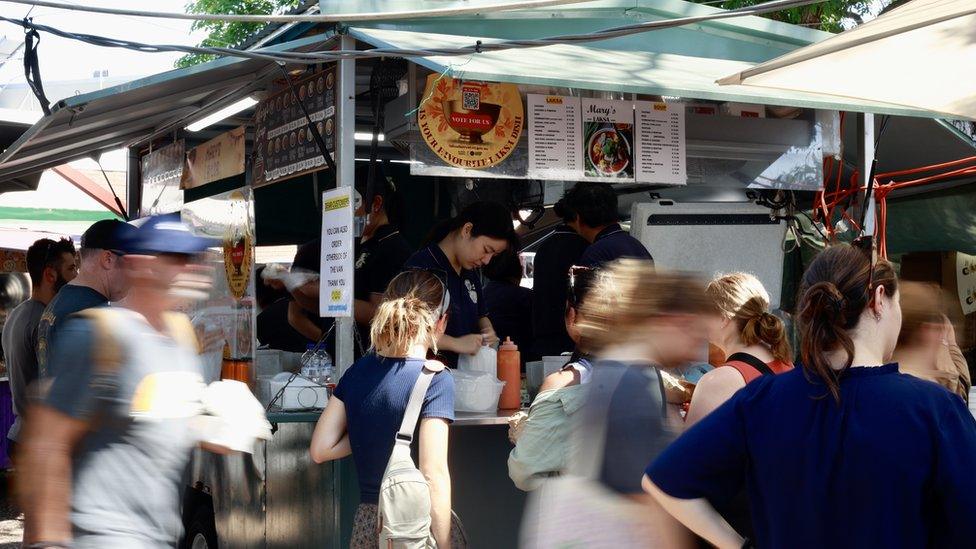
Crowds outside the much-loved Mary's Laksa stall
Darwin is a city obsessed.
Here in this town on Australia's northern edge, laksa is the meal of choice for breakfast, lunch and dinner, weekday or weekend, a staple everywhere from food courts and cafes to snazzy restaurants.
The sour and spicy noodle broth, traditionally topped with meat or seafood, is the love child of Malaysian, Indonesian and Singaporean cuisine, though each tries to claim it.
If you ask Darwin though, they'll say it's theirs now.
Such is the love for laksa in this multicultural city that it's inspired weekly rituals, sparked rivalries that have divided households, and turned humble chefs into local celebrities.
"As a dish, it really does help sum up not just the community, but where we are and what we are," says demographer Andrew Taylor.
"You've got a population here that's just different and laksa too is different to everything else."
Nowhere is the city's infatuation more obvious than at its local markets.
The mercury in Darwin rarely dips below 20C and the air is often so thick with humidity that walking to the letterbox leaves you needing a shower.
And yet, every Saturday like clockwork, sweaty crowds form lines between stalls at the Parap Markets, craving a fix. A tangy scent and a choir of electric fans greet the faithful, many armed with containers to take home a few ladlefuls of the beloved soup.
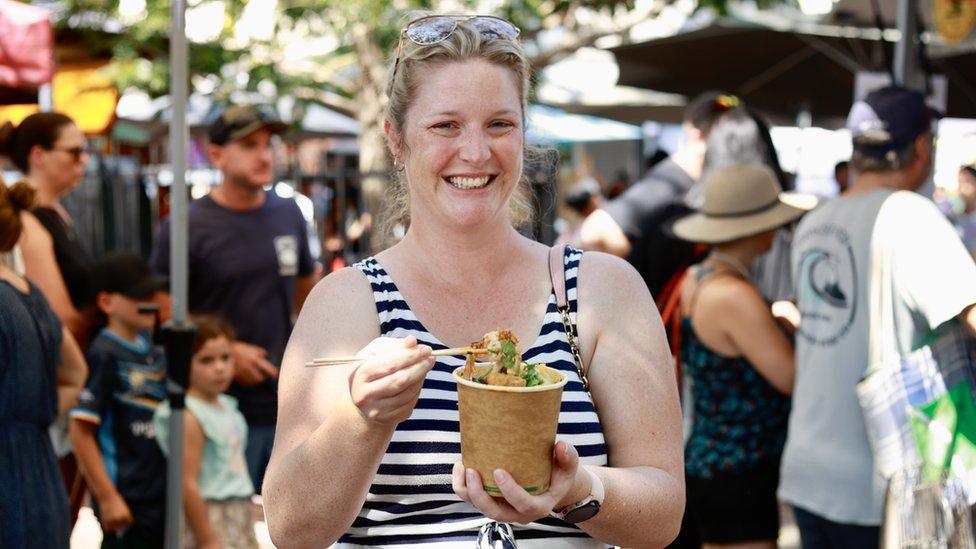
Kristy says she will miss the laksa when she leaves Darwin
Everyone has their favourite.
"It's very controversial which laksa you go to," local Elly says. "It's properly a debate in our household. There's two people that love Yati's, there's two people that love Purple Lady, and one undecided."
Kirsty's family is firmly on team Mary - a stalwart of the Parap Markets who has been dishing up steaming bowls of brothy goodness for two decades.
"We're a military family and we're actually coming to the end of our two years [here], so we're trying to get our Mary fix as much as we can," Kirsty says.
In October, the mania kicks into another gear for the month-long laksa festival.
A giant shrine to laksa is erected in the city's mall, the streets are decked out with banners promoting the event, and the most outlandish and tasty dishes become excited water cooler-buzz and fodder for group chats.
On offer are traditional laksas of every ilk - thick and soupy, or thin and light; topped with wontons or adorned with prawns; chicken or pork or vegetarian.
But there's also the more adventurous oddities - laksa ice-cream, laksa pies, laksa smoothies, even vegan laksa-gna and laksa crocodile dumplings.
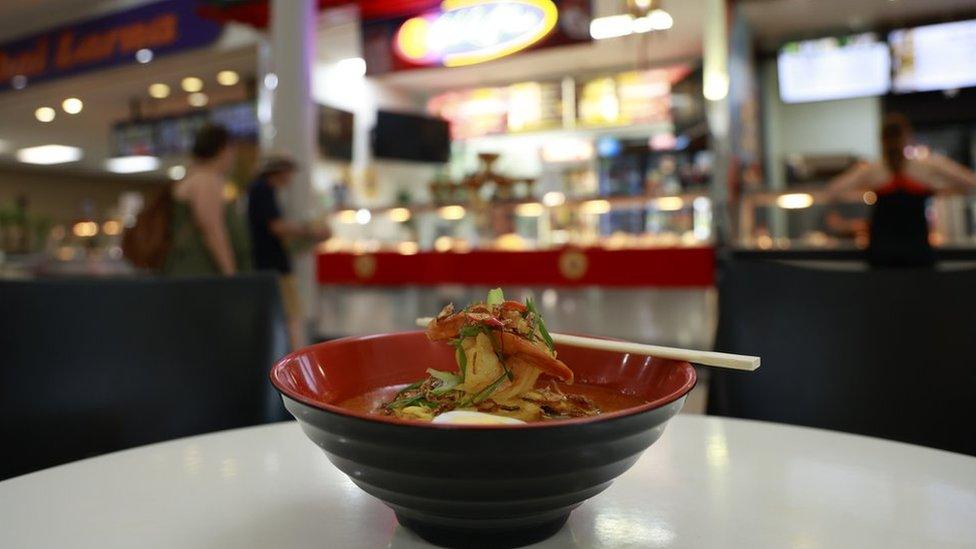
Chok's Place is a Darwin institution
No one is sure exactly when, or exactly how, this laksa obsession began in Darwin.
"I grew up in Darwin and laksa just has always been a thing that people love," says Jo Smallacombe, who organises the government-backed festival.
But the answer likely lies in the city's long and rich multicultural history.
It is far closer to Asia than it is to every other Australian capital. From the Japanese pearl divers and Chinese gold rushers who came in the late 1800s to now, Darwin has been a hotspot for travel. There's even evidence the Top End's First Nations people were trading with their neighbours before the country was colonised.
And today the Northern Territory is one of Australia's most culturally diverse places - more than half of the population was born overseas, or has a parent who was.
"Everyone's just contracted this laksa fever," Jason Chin tells the BBC, grinning. Stopping to greet at least four people, the 42-year-old explains how he accidentally became the city's laksa king and the festival's most decorated chef.
His mum Loretta bought a modest food court joint called Chok's Place from a friend 30 years ago. He spent years helping out after school and raiding the drinks fridge, before having an epiphany.
"I actually woke up one day and said 'Mama, I'd like to start doing what you're doing."
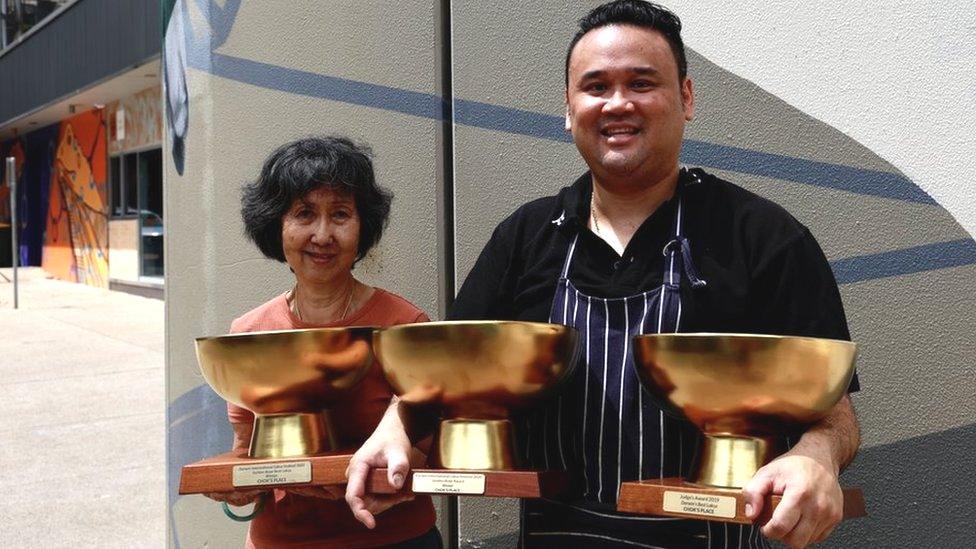
Jason Chin and his mum Loretta
Fast forward to 2019 and Mr Chin - who had by then bought the business from his mum and quietly built on her legacy and her recipes - became a last-minute entry to the city's first-ever laksa festival.
Vendors compete for the coveted Golden Bowl, the winner of which is determined with a blind tasting.
When judgement day came, Mr Chin plated up his laksa then, without a fuss, went straight back to work. "I didn't wait around because it was a Saturday and we have a skeleton staff on," he says with a shrug.
He only found out he'd won when the festival organisers called the next day to ask where he'd gone.
Almost overnight, business exploded. Chok's Place went from sometimes selling only six laksas a day, to almost 100. Now Mr Chin caps the number of dishes at 50 to ensure quality, making it even more of a commodity.
He took himself out of Golden Bowl contention this year to share the love, but was inducted in the Laksa Festival Hall of Fame.
Alongside the more traditional offerings, there are also scores of vendors who vie for the title of best laksa-inspired dish.
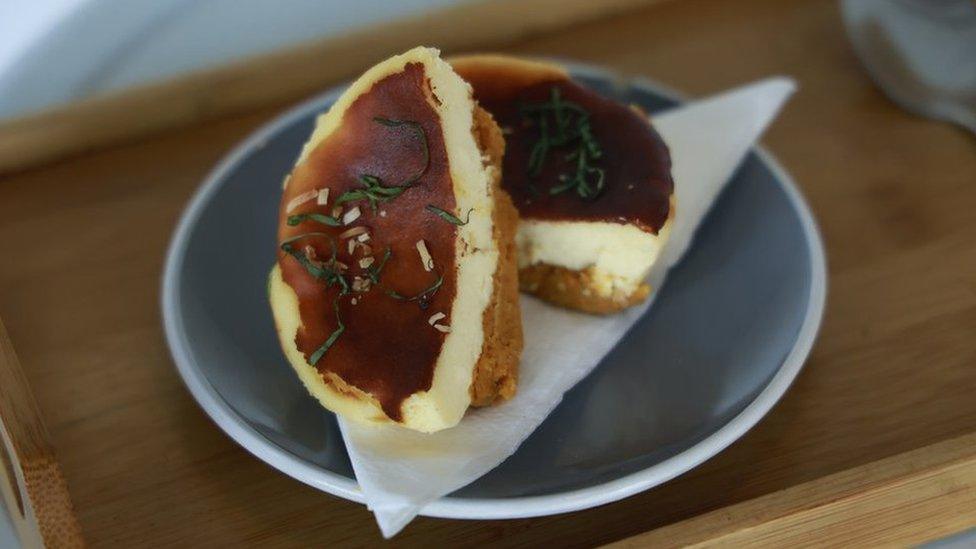
The laksa cheesecake wasn't for everyone
Among the most controversial is a Basque burnt cheesecake at Kopi Stop. Its Singaporean creator Jules Mou has strong laksa credentials; her traditional bowl is an undeniable hit and this year, it won People's Choice, but she also wanted to plate up something unique.
The top is innocent enough - sweet and fluffy - before it gives way to a thick slab of laksa paste, in place of a biscuit base.
"I was thinking laksa coffee, 'Mmm, I really want to try it, but I really don't'," Ms Mou said with a laugh: "[But] one day, it just came to me like, 'Oh, maybe we can try a cheesecake'."
When word got around that One Mile Brewery would be making an alcoholic Laksa Seltzer, customers were similarly sceptical.
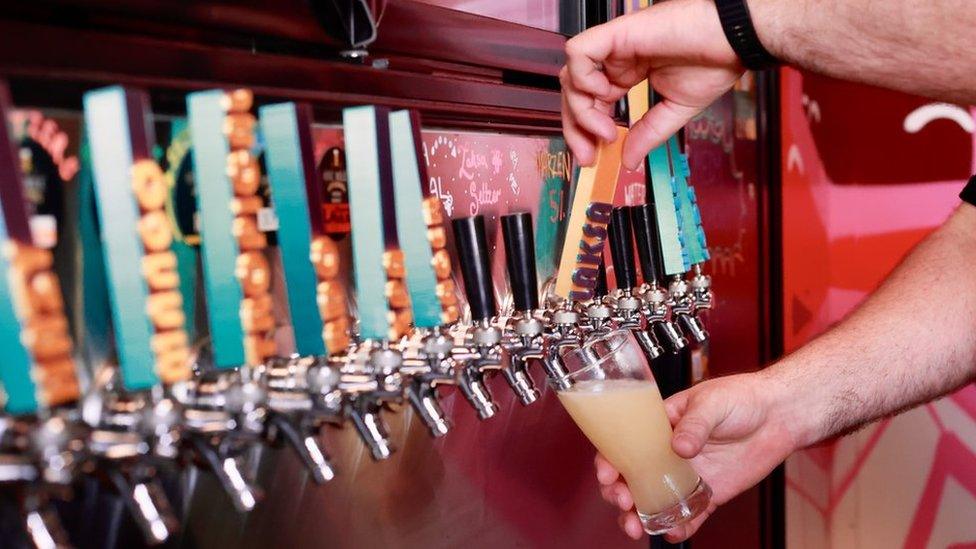
The Laksa Seltzer has been a surprise hit for many customers
"People were very much like, 'Really?' And some people were just like, 'Why?'" brewer Stuart Brown said.
He and business partner Bardy Bayram briefly tossed up working noodles and coconut milk into the drink somehow, but decided floaties and a creamy flavour would probably be a bridge too far.
They landed on a brew which, by their own admission, smells "pungent". But it is surprisingly palatable - fruity, with notes of lime, coriander and chilli, and a slight salty aftertaste.
"You look at it and you think: it's chunky, it's full, and it's not the right colour. But if you close your eyes, block out your nose and have a sip…" Mr Bayram says.
"I've said to people, try it without breathing if you can," Mr Brown adds.
Some laksa-inspired dishes are cult favourites though - one local says she has to buy and deep-freeze laksa sausages for her mum to take home when she visits from interstate.
And even the dishes that don't work, that are borderline offensive, are a fun celebration of the things that make Darwin extraordinary, locals say.
"It's something different, it's exciting, everybody's trying to be innovative - it's great!" Ms Mou says. "It represents who we are."
That includes laksa chocolate, which is dividing opinion in Darwin.
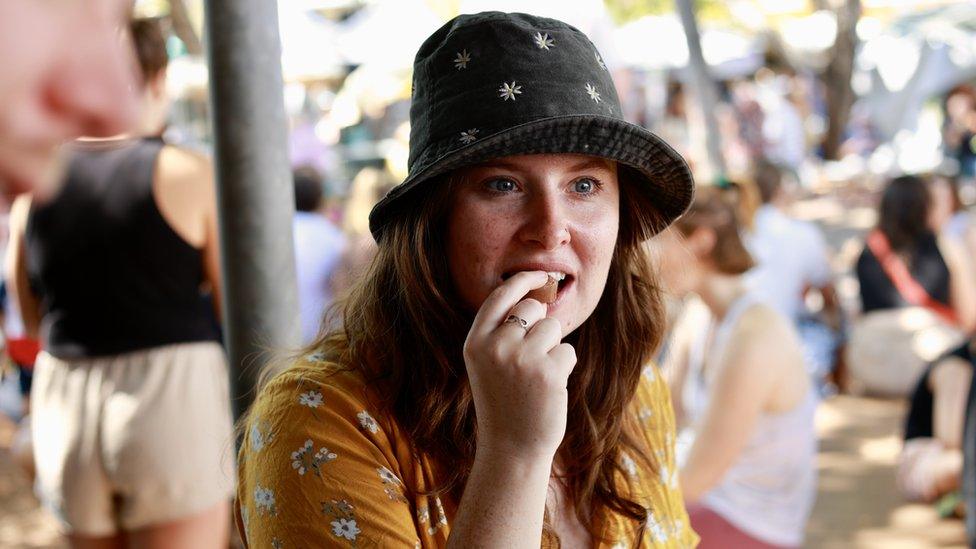
The laksa chocolate got mixed reviews from Elly and others
Getting a whiff of "curry" before biting, brave taste-testing volunteer Tim's face shifts from concern to relief as he chews.
"Oh my god, it does taste like laksa… then a caramel, sweeter taste at the end," he says.
Would he buy it for himself? That's a polite but resounding no.